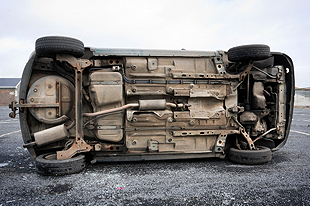If a person is killed because of the wrongful conduct of a person or persons, the decedent’s heirs and other beneficiaries may file a wrongful death action against those responsible for the decedent’s death. This area of tort law is governed by statute. Wrongful death statutes vary from state to state, but in general they define who may sue for wrongful death and what, if any, limits may be applied to an award of damages.
A wrongful death claim generally consists of four elements:
Mr. Morgan takes wrongful death lawsuits very seriously. These matters are complicated, lengthy and expensive to resolve. The sooner you have an experienced lawyer by your side fighting for you, the sooner you will be able to ensure your family's financial future and well-being. We can help you recover compensation for the following:
Personal Injury Attorney Brian J. Morgan handles civil litigation in San Bernardino county, Riverside and Los Angeles area. Mr. Morgan serves clients in High Desert area - Apple Valley, Victorville, Hesperia, Phelan, Lucerne Valley; Barstow and its surrounding communities - Newberry Springs and Yermo.

FREE CONSULTATION
Contact 760-242-8298 or 760-256-2183 NOW!!
NO FEE UNTIL MONEY RECOVERED